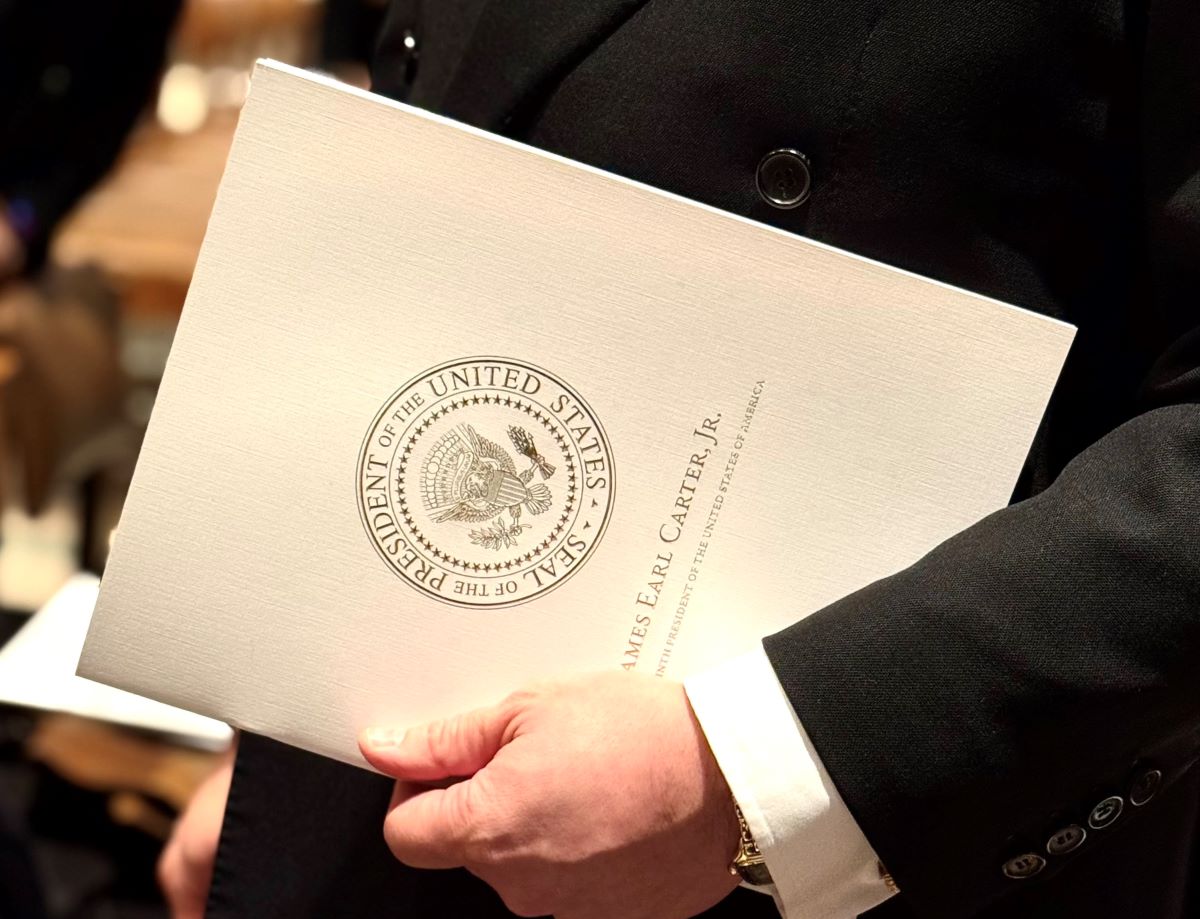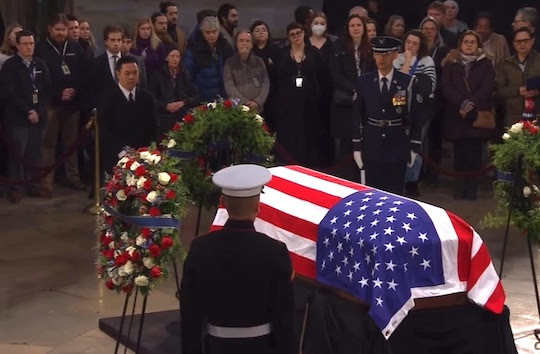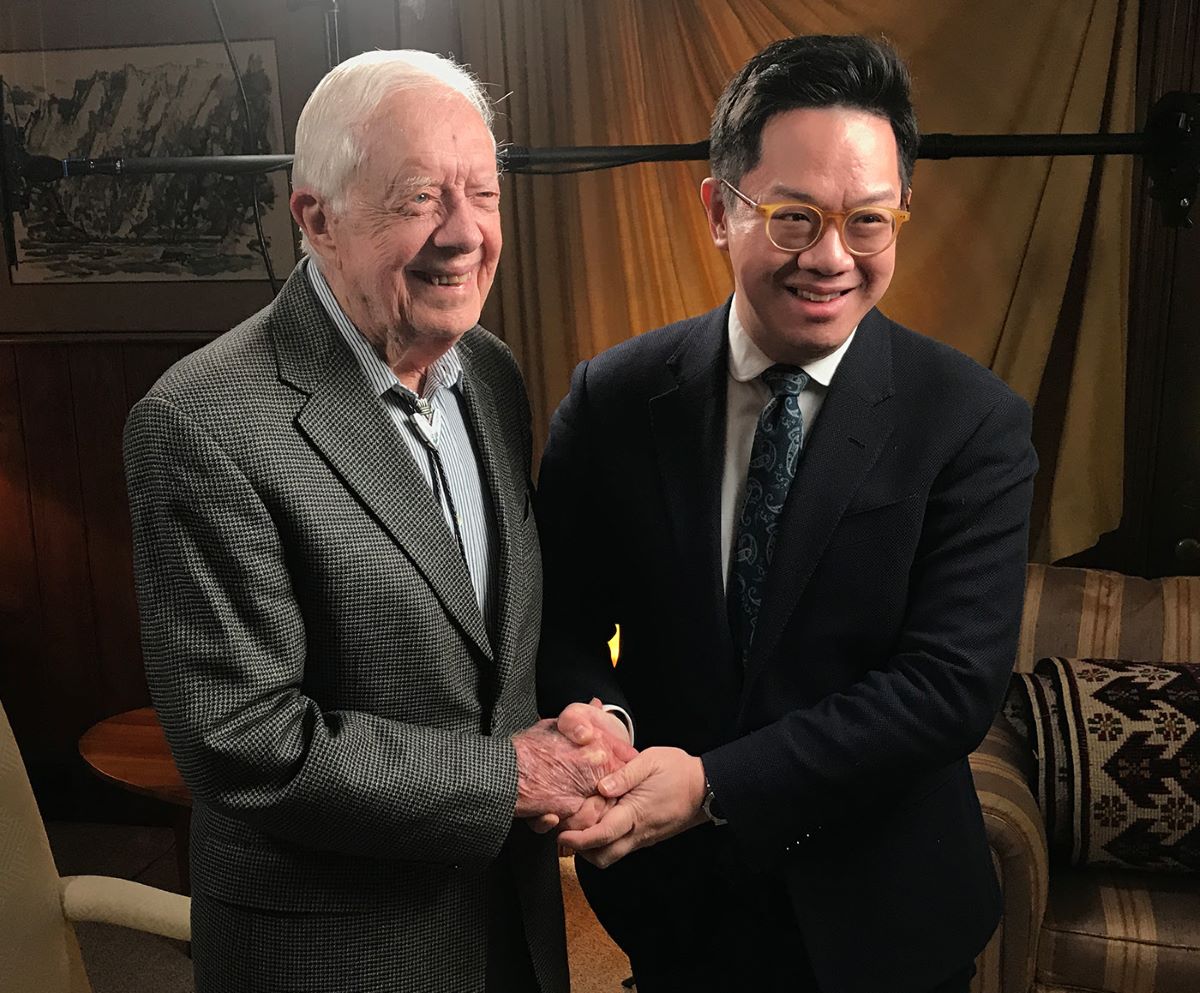
Last week, the world came together to say goodbye to Jimmy Carter – the longest-lived American President, and probably the last major world leader from the Cold War period, whose achievements will far surpass even his 100 years.
The China-United States Exchange Foundation (CUSEF) has a long-standing relationship with The Carter Center, built on the personal friendship between the two global figures who founded our two extraordinary organizations: Mr. Tung Chee-hwa and President Carter. Over the years, we have proudly supported the work of The Carter Center, and we recommit to doing our part to fulfill President Carter's dream of a fairer world.
I first met President Carter through my work in the United Nations and was honored to represent CUSEF at the state funeral last week. The day before, I was invited on behalf of CUSEF to the U.S. Capitol to pay private respects to the man who means so much to us.
The military guard who escorted me into the Rotunda, where he lay in state, told me what to expect of this historic room: "It will be very grand, yet very intimate."
She was right. As I walked around the casket, draped in the Stars and Stripes and positioned on a black tasseled bier, I felt both the magnitude and the humility of the man whom millions of people have been remembering since his passing on December 29, 2024.

That contrast was felt keenly the next morning inside Washington National Cathedral, where Presidents Clinton, Bush, Obama, Biden, and Trump sat alongside ordinary Americans with ties to the Carter family and legacy.
There was no doubt we were there for a historic occasion and the passing of one era into the next. President Carter was continually referred to by the clergy as "our brother James" and, in prayers, as "your servant James," a testament to the humility with which he carried himself for over a century — from giving up his room to a young couple on a Habitat for Humanity field trip to Haiti (he and Mrs. Carter slept on the floor), to prodigiously rinsing and reusing his Ziploc bags at home.
That President Carter lived longer than his contemporaries was evident in poignant ways: two of the tributes were delivered by the sons of President Ford and Vice President Mondale, who had written their contributions before their own deaths in 2006 and 2021, respectively.
There were also multiple guests who had worked in the Carter White House from 1977-1981, a period that straddled the Cold War, the Camp David Accords, the release of the American hostages in Iran, and of course, the normalization of U.S.-China relations.
The Carter White House has often been described as a "one-term administration," as if his election loss to Ronald Reagan negates the many milestones of his four years in office. During this time, President Carter created the first national comprehensive energy plan; more women were appointed to cabinet than any of his predecessors; and, with the leadership of Mrs. Rosalynn Carter, he signed into law the Mental Health Systems Act of 1980 that shifted the focus of care from institutional settings, such as psychiatric hospitals, to community-based services.
Today, the environment, gender equality, and mental health have all become mainstream, if still at risk, issues in public policy. He was decades ahead of his time.
In his eulogy, Stuart Eizenstat, who steered domestic affairs in the Carter White House, made this remark: "It is time to redeem his presidency and also lay to rest the myth that his greatest achievements came only as a former president. The test of American presidents is not the number of years they serve but the duration of their accomplishments. By this measure, Jimmy Carter was among the most consequential one-term presidents in American history."

I last met President Carter in 2019 at his office at The Carter Center in Atlanta. I asked him what he thought was his greatest success. I hoped he would mention the normalization of U.S.-China diplomatic ties, which he achieved with Chinese leader Deng Xiaoping, his co-architect in this endeavor. Instead, he said he was most proud of encouraging the return of Christianity to China, having asked Mr. Deng for his support in 1979.
Because President Nixon and Dr. Henry Kissinger (who served as an Honorary Advisor to CUSEF until his passing in 2023) ended the silence between the two countries through their efforts in 1971-72, history often forgets that it was President Carter who normalized bilateral ties on the U.S. side.
While there may be other reasons why the positive outcomes of this relationship are not as openly discussed today, let's be clear: it was a monumental event that brought an end to the Cold War and laid the groundwork for decades of cooperation that have made the world a safer, more peaceful, and more prosperous planet.
The U.S. and China will continue to shape the future. Pretending that either country is not entitled to its own progress will not alter the reality that both deserve to thrive. The success of one country not only informs the success of the other country, but their joint success will determine the development and well-being of the overall human condition.
President-elect Donald Trump, who will be inaugurated in a matter of days, expressed the power and possibilities of this relationship when he said during a press conference on December 16, 2024: "Because China and the United States can together solve all of the problems of the world if you think about it, so it's very important."
It is indeed important for everyone to keep this in mind.
Once again, on behalf of CUSEF, we thank the Carter family and The Carter Center for allowing us to pay our final respects in Washington, and we express our sincere condolences on the passing of Jimmy Carter — who will be canonized by history as a president, servant, and brother.
Many beautiful and lasting words were spoken at the Washington National Cathedral. But Mr. Eizenstat said it best when he closed his eulogy with this wise and mirthful reminder: "Jimmy Carter has earned his place in heaven. But just as he was free with sometimes unsolicited advice for his presidential successors, the Lord of all creation should be ready for Jimmy's recommendations on how to make God's realm a more peaceful place."
It brought a smile to many faces in the cathedral, on a day we gave thanks for the life of President Carter.
James Chau
President
China-United States Exchange Foundation (CUSEF)
